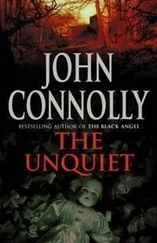Lucy Highmore.
On that first date, Lucy had politely declined to share a pie, and had simply sipped delicately at a glass of water—so delicately, in fact, that natural evaporation caused the level in the glass to drop more than Lucy’s sips.
Now, months later, she and Samuel were still together, but both of them were starting to think that they shouldn’t be, although neither could quite find the words to say it. They were also back in Pete’s Pies. Since Lucy never seemed to eat much, it didn’t really matter where they went. She could choose not to eat in Pete’s Pies just as easily as she could choose not to eat anywhere else. They were the only people in the pie shop apart from old Mr. Probble, who now spent his days reading the Oxford English Dictionary in order to improve his word power. He’d started at A, and was reading a page a day. This meant that conversations with Mr. Probble tended to involve exchanges like the following:
“Hello, Mr. Probble. Nice day, isn’t it?”
To which Mr. Probble might reply, “Aardvarks amble awkwardly.” 17
Samuel stared into Lucy’s eyes, and Lucy stared into his.
“You know,” she said, “you ought to get new glasses.”
“Really?” said Samuel.
“Yes, those ones make your face look a funny shape. They also make you seem like you have trouble seeing properly.”
“But I do have trouble seeing properly,” said Samuel.
“But you don’t want everyone to know, do you?” said Lucy. “It’s like ugly people and hats.”
“Is it?” said Samuel, not sure where ugly people came into it, exactly, or hats.
“Of course, silly.”
Lucy patted Samuel’s arm. To be honest, “patted” might have been an understatement. There were wrestling champions who would have screamed “Ouch!” after being patted by Lucy Highmore. She had quite a swing on her for a thin girl.
“Ugly people wear hats so that people can’t see how ugly they are,” explained Lucy. “The hats cast a shadow, and so they hide their ugliness, and pretty people don’t have to feel so bad about being pretty.”
“But . . .” said Samuel, rubbing his arm. He tried to find his train of thought, but it had departed the station long before, with a fat lady on the back waving good-bye with a handkerchief and leaving Samuel stranded on the Platform of Confusion. “But don’t pretty people wear hats, too?”
“Yes, sillikins,” said Lucy, and Samuel just prayed that she wouldn’t pat his arm again. He still couldn’t feel his fingers. “But they wear them for a different reason. Hats on pretty people make them look prettier! Everything looks prettier on pretty people. It’s a law.”
“Right,” said Samuel. If you followed that statement to its logical conclusion, then Samuel’s glasses should have made him look prettier—er, more handsome—but only if he was pretty—er, handsome—to begin with. But if they didn’t make him look more handsome—there, got it right the third time—did that mean he wasn’t handsome at all? Samuel sort of guessed that he wasn’t, but he was hopeful that the situation might change as he got older. The fact that Lucy Highmore had agreed to go out with him had fueled that hope.
In a way, both Lucy and Samuel had made two versions of the same mistake. Lucy had agreed to go out with Samuel because, despite what some of the folk in Biddlecombe might have thought or said, he was a kind of hero. He had faced down the hordes of Hell. He had fought demons. He might have been visually challenged, and distinctly awkward, and so attached to his dog that it accompanied him on dates, but he still wasn’t like most of the other ordinary boys in Biddlecombe, and Lucy Highmore felt less ordinary for being with him. It was the same reason that she always made sure her hair was perfect before leaving the house, and always wore the prettiest and most fashionable clothes, and always surrounded herself with people who were slightly less pretty and perfect than she was. She did it because, deep inside, she suspected that she wasn’t as interesting, or clever, or even as pretty as she liked to believe, but if she acted like she was, and shielded herself with boys and girls who were even more insecure, she might just convince everyone that she was better than they were. If she tried really, really hard, she might even convince herself.
But the main reason that Lucy had agreed to go out with Samuel was because Maria Mayer, one of Samuel’s closest friends, was more than a little in love with him. Everyone knew this—everyone, that is, except Samuel, who was a bit thick when it came to girls. If Maria wanted Samuel, thought Lucy, then there must be something there worth having, even if Lucy wasn’t entirely sure what that was.
And Samuel? Well, Samuel had always been happy with himself. I don’t mean that he was smug, or self-satisfied. He knew he was awkward, and didn’t see very well without his glasses, and that, in his case, his best friend really was his dog, but he didn’t mind. He got on well with his mum, and with his dad, most of the time, even if his dad now lived in Norwich with a lady called Esther who wore so much makeup that, when she smiled or frowned, or even when she spoke, cracks appeared in her face and cosmetics avalanched to the floor. She had kissed Samuel the first time that they met, and the left side of his face had turned brown.
But he had looked at Lucy Highmore, who had never so much as glanced at him before all of that demon business, and wondered if being with her might make him feel just a bit less awkward, and a little less like an outsider. Who knew, she might even help to make his hair do what he wanted it to do. (Samuel’s hair never seemed to want to do anything other than slouch lazily on his scalp like a flat, yellow animal; he had tried using gel on it once, and it had ended up looking like a flat, yellow animal that had somehow become frozen in place just as it was about to attack someone from the top of a small boy’s head.) She could advise him on how to dress so that his shirt matched his trousers, or his shoes matched his jacket, or even so one sock matched the other. In the end, Samuel had wanted Lucy to make him better than he was, ignoring the fact that he was doing perfectly well just being himself. The result was that, because she was secretly more unhappy than he was, she had just ended up making him feel worse: about his hair, his clothes, his friends, himself, even about Boswell.
Lucy Highmore wasn’t a bad person. She was slightly vain, but she wasn’t mean. Samuel wasn’t a bad person either. He was just insecure, and tired of being the odd kid out. Together, they were a small mistake that was rapidly becoming a bigger, more complicated one.
“If you like,” said Lucy, “I’ll go with you to help you choose your new glasses. It’ll be fun.”
Boswell, lying on the floor of Pete’s Pies beside his beloved master, put his head between his paws and sighed a long dog sigh.
15. Similarly, a century ago you would not have been happy to find that one of the passengers on your ship was Violet Jessop. Ms. Jessop, a stewardess and nurse, was on the Titanic when it sank in 1912. She was also on the Brittanic, which was hit by a mine in 1916, and she was on board the Olympic, the Titanic ’s sister ship, when it collided with HMS Hawke in 1910. If Violet Jessop was one of your fellow passengers on a voyage, you might as well have jumped overboard at the start just to get the whole business out of the way.
16. To quote the title of a famous song, “Breaking Up Is Hard to Do,” and people find all sorts of ways to do it. If someone is breaking up with you, they may tell you that “it’s not you, it’s me.” This will be a lie. If someone says that it’s not you in order to stop going out with you, then it is you. It doesn’t matter if they tell you that they want to go off and help little orphans in some obscure part of the world, or sign up for a dangerous experimental space mission, or become a monk or a nun, and this is why it’s not you, it’s still you. You, you, you. Believe me, I know. I’m not bitter, though. Not really. Okay, maybe a bit.
Читать дальше












